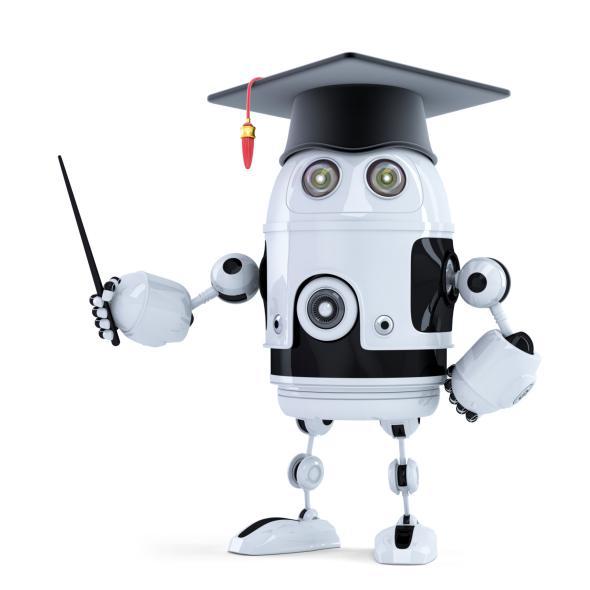IBM’s Watson has long served as a splashy representative for the venerable computing company, starring in commercials with the likes of Carrie Fisher and trouncing human stars at Jeopardy! Now, however, A.I. researchers at Georgia Tech have found a subtler application for Watson’s capabilities, using them to simulate a teaching assistant for a large master’s-level course. What’s more, they did so without alerting the students in the class.
Fittingly, the class in question was Ashok Goel’s Knowledge Based Artificial Intelligence, which aims to help students learn “to build AI agents capable of human-level intelligence and gain insights into human cognition.” As Melissa Korn reports in the Wall Street Journal, the class’ 300-some students “typically post 10,000 messages a semester” to an online message board—more than the course’s human TAs can respond to.
But as Goel notes, while “the number of questions increases if you have more students … the number of different questions doesn’t really go up.” The vast majority of those requests deal with straightforward questions of course logistics, which means that they have simple, objective answers, but they can still take time to answer. So Goel and his team set out to create a system that could respond to the sort of queries that cropped up over and over again, and then they released it onto the message board. Though Goel and his collaborators didn’t alert students to the artificial nature of their ninth teaching assistant, they did give it a name that winks at its origins: Jill Watson.
By the end of the semester, “Jill” was reportedly answering questions with a 97 percent success rate, having learned to parse the context of queries and reply to them accurately. As Korn writes, students apparently hadn’t suspected anything was unusual about the helpful interlocutor, and at least one claims he was “flabbergasted” when he learned its true nature. (Another tells Korn he had “wanted to nominate Jill Watson as an outstanding TA,” which may well be a joke.) Goel apparently plans to repeat the performance next semester and says that he’ll give his creation a new name to extend the fun (though presumably his next batch of students will having an easier time distinguishing real from fake).
Gizmodo’s George Dvorsky observes that Goel’s stunt is disconcerting, since “it’s upsetting to hear that bots could replace yet another job.” But as Dvorsky also writes, for now Jill and her kin are mostly working to eliminate tedious labor—answering questions that Goel’s human TAs were too busy to field. As Korn notes, by automating some of the work of teaching, Watson may actually give teachers the opportunity “to tackle more complex technical or philosophical inquiries” that they’d otherwise be incapable of engaging with at length.
In this sense, Jill Watson may actually represent the practical future of artificial intelligence. While there are legitimate concerns about A.I. and job loss, computers are unlikely to truly replace workers in most industries. Instead, as Madeleine Clare Elish has argued in Future Tense, they’re more likely to function as helpmates, whispering advice into our ears or eliminating annoying responsibilities. It sounds like a bright future to me: Having wasted countless hours during my own years as a TA answering emails about due dates and exam topics, I know that there are only so many times you can type, “It’s on the syllabus” without going a little crazy.
